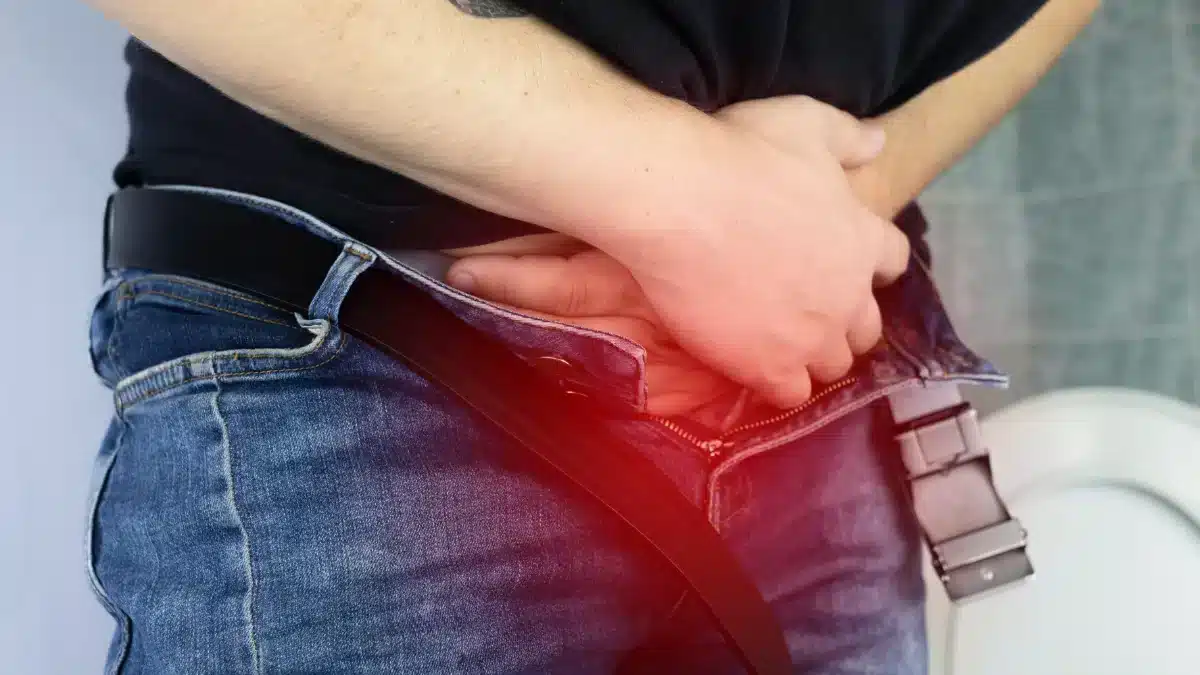Are Genital Warts Itchy: Unveiling the Itch Factor
Genital warts stemming from the Human Papillomavirus (HPV) are a prevalent Sexually Transmitted Infection (STI).
Amid their physical and emotional challenges, these small, flesh-colored growths often raise questions about associated symptoms.
Itching, though not universal, is a notable concern for those affected by genital warts.
In this concise exploration, we will examine are genital warts itchy.
It will provide insight into its causes and potential impact on individuals dealing with this common and often misunderstood STI.
The itch factor
Itching is a symptom that some individuals with genital warts may experience, although it is not universal.
The degree of itchiness can vary from mild to severe, and it may be influenced by factors such as the size and location of the warts, as well as individual differences in skin sensitivity.
It can be uncomfortable and concerning for some people with genital warts, even if everyone does not experience it.
A person’s quality of life may be negatively impacted by the condition overall, and the itching sensation can range from minor to severe.
The accompanying symptoms

Genital warts can be transmitted through various forms of sexual activity, including oral, vaginal, and anal sex.
The onset of wart development may not manifest until several weeks or months after infection.
The growths on the top may exhibit a cauliflower-like appearance and have a texture that feels smooth or slightly bumpy to the touch.
They can occur either as a cluster of warts or as a single wart.
In individuals assigned male at birth, genital warts may manifest in areas such as the penis, scrotum, groin, thighs, and inside or around the anus.
For those assigned female at birth, these warts may appear inside or outside the vagina or anus and on the cervix.
Genital warts can also manifest on the lips, mouth, tongue, or throat of individuals who have engaged in oral sexual contact with someone infected with HPV.
Even when genital warts are not visibly apparent, they may still lead to symptoms such as vaginal discharge, itching, bleeding, or a burning sensation.
If these warts spread or increase in size, the condition can become uncomfortable or even painful.
Managing genital warts

Genital warts can be treated through various methods, and multiple sessions may be required for complete removal.
It is essential to abstain from sexual contact during the treatment period.
Healthcare providers employ different techniques to address genital warts, including:
- Electrocautery: This method uses an electric current to burn away the warts
- Freezing (Cryotherapy): Liquid nitrogen is applied by your provider to freeze and eliminate the warts
- Laser Treatment: Tiny blood vessels inside the warts are destroyed using laser light, effectively cutting off their blood supply
- Loop Electrosurgical Excision Procedure (LEEP): An electrically charged wire loop is utilized by your provider to remove warts. This method is often applied for warts on the cervix
- Topical (Skin) Medicine: Prescription chemical solutions or creams are applied weekly for several weeks. These cause blisters to form under the warts, disrupting blood flow
- Surgery: For large or unresponsive warts, surgical removal may be recommended. This involves cutting out the warts
Adhering to your healthcare provider’s guidance is crucial for a successful treatment outcome.
Conclusion
Genital warts, often stemming from the Human Papillomavirus (HPV), present both physical and emotional challenges as a prevalent Sexually Transmitted Infection (STI).
While itching may be a symptom for some, it is not universal, varying in intensity.
The impact of genital warts extends beyond visible growths, affecting the overall quality of life.
Despite potential discomfort, various treatment methods offer relief, from electrocautery to surgery.
Adhering to healthcare provider guidance and understanding the diverse manifestations of genital warts are crucial steps in managing them.
Frequently Asked Questions
Are genital warts extremely itchy?
While warts are frequently asymptomatic, they can occasionally induce pain, itching, burning, irritation against clothing, and sporadic bleeding. Additionally, they may lead to discomfort and bleeding during sexual activity.
What can be mistaken for genital warts?
Molluscum contagiosum may be confused with genital warts or pimples. If you observe any atypical skin lesions, it is advisable to consult your doctor for a precise diagnosis. Currently, there is no specific test available for molluscum contagiosum.
How long do genital warts last?
While genital warts may resolve on their own without intervention, if they cause pain, are unsightly, itchy, or uncomfortable, treatment is an option. It’s important to note that treatment addresses the warts, not the underlying virus. The immune system will naturally eliminate the virus within 1 to 2 years.
WowRx uses only high-quality sources while writing our articles. Please read our content information policy to know more about how we keep our content reliable and trustworthy.






